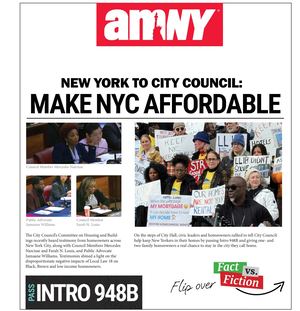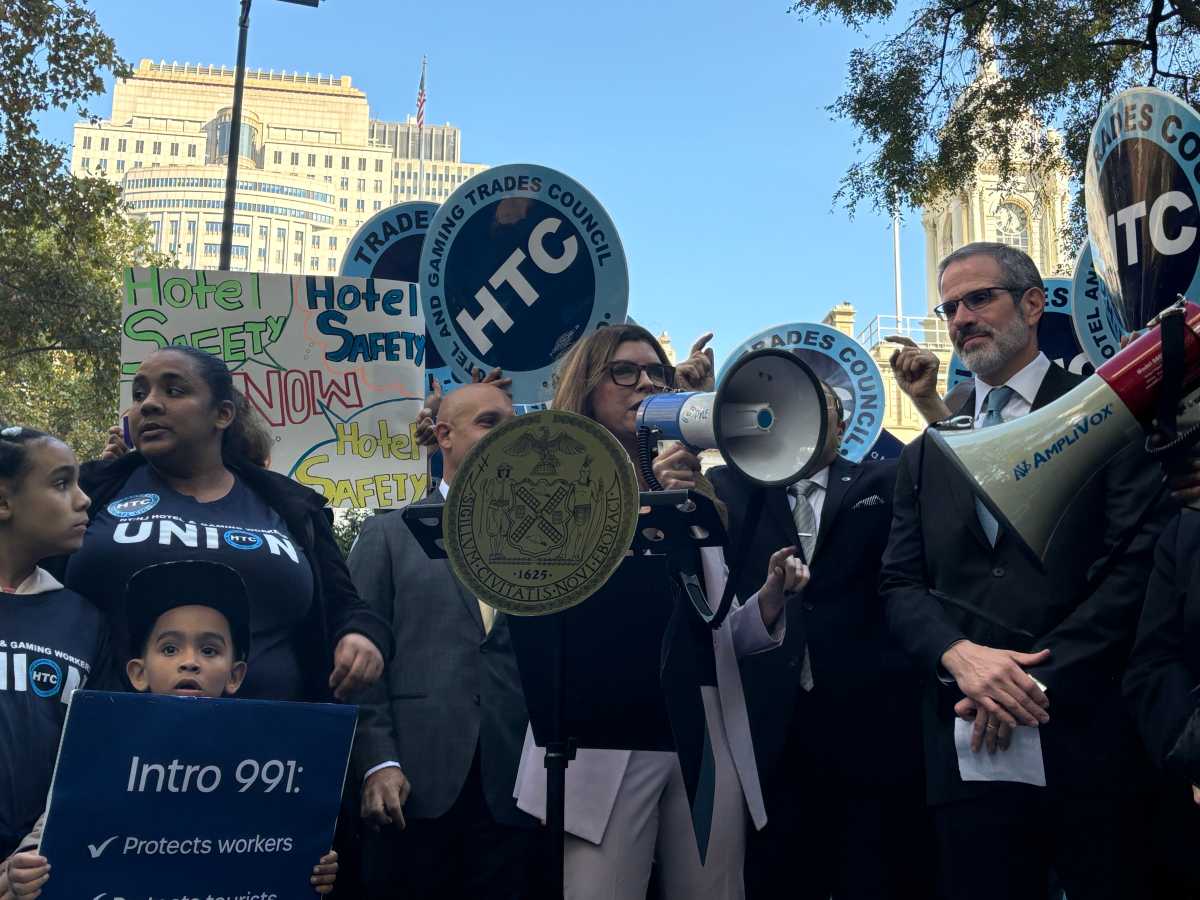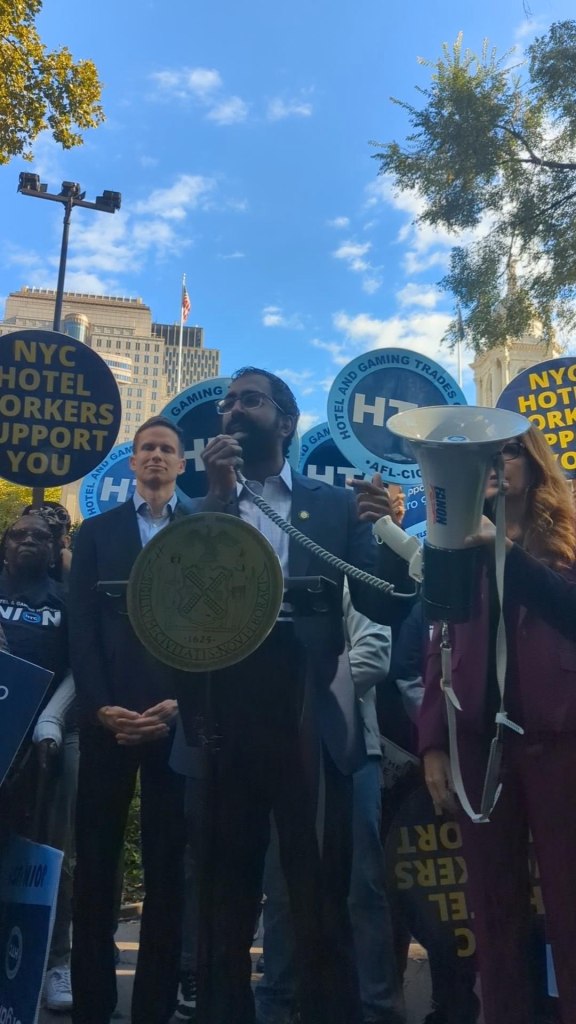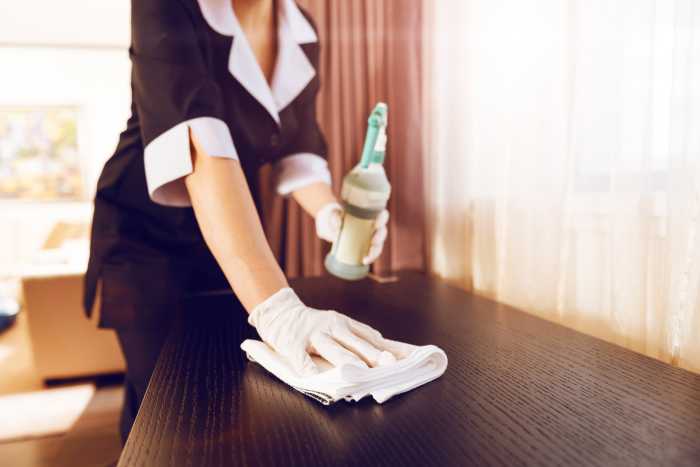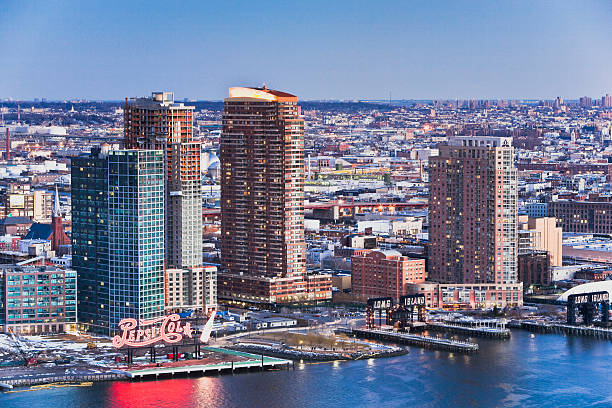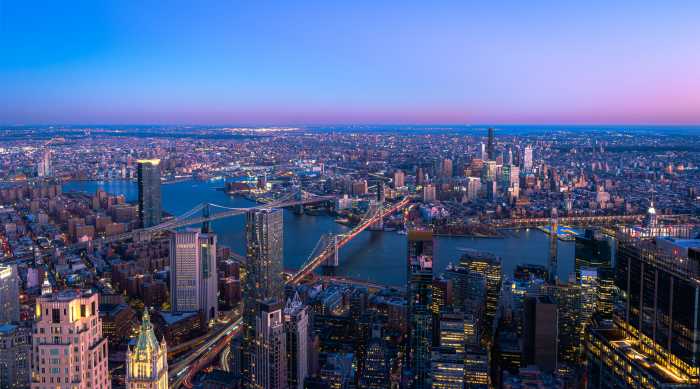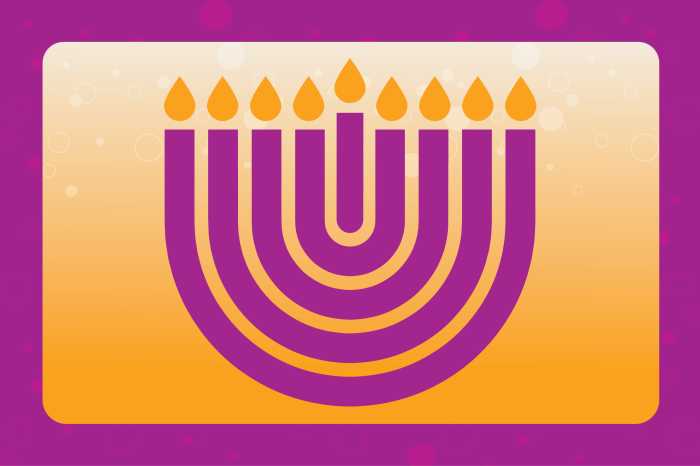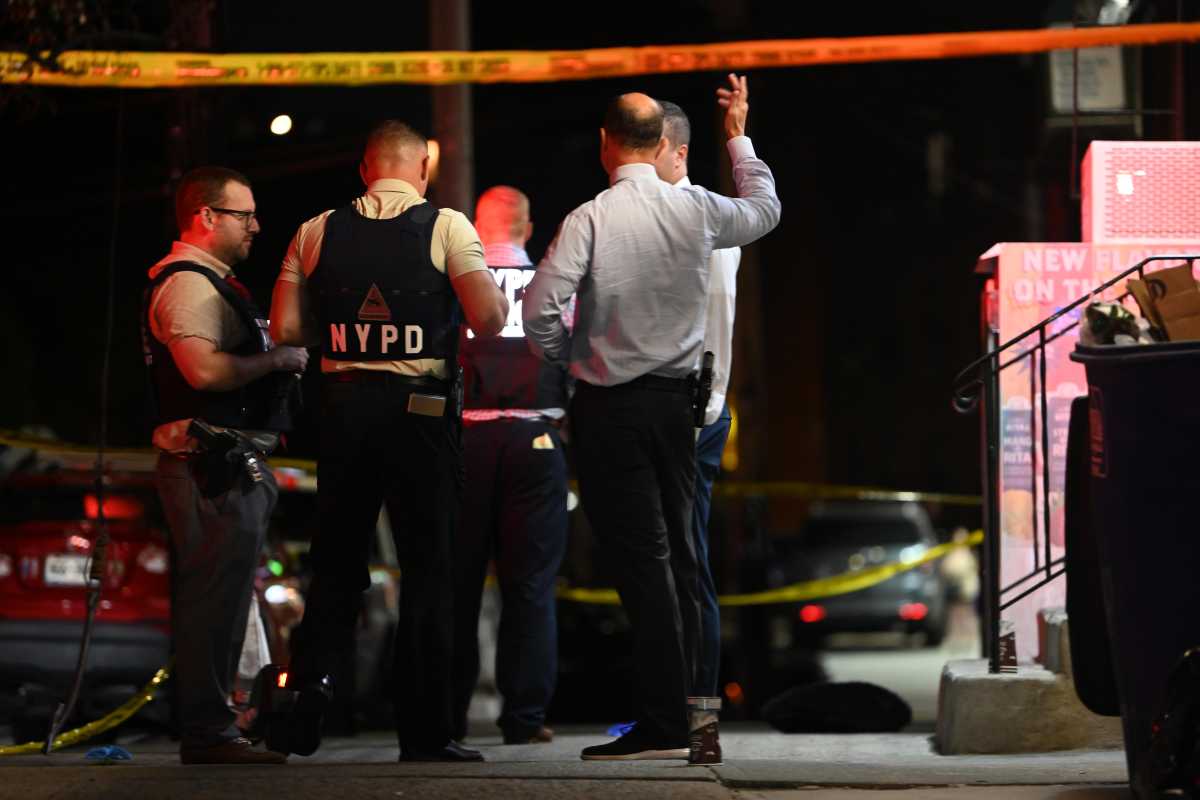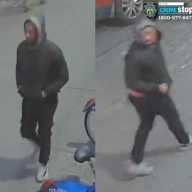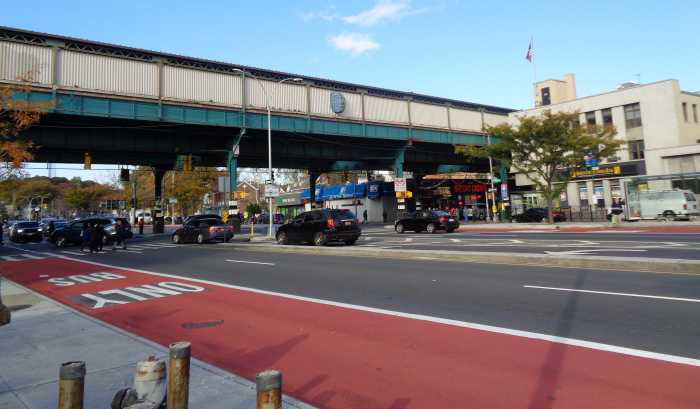New York City hotel owners will soon be required to obtain licenses in order to operate within the five boroughs under legislation passed by the City Council on Wednesday.
The 51-member council passed the bill, known as the “Safe Hotels Act,” by an overwhelming 45 to 4 votes, with one abstention, during an Oct. 23 meeting. City Council Member Julie Menin (D-Manhattan), the bill’s prime sponsor, said she is confident that Mayor Eric Adams will sign it into law. The mayor supports the bill, according to mayoral spokesperson Amaris Cockfield.
The legislation has sparked a lot of controversy since Menin first introduced it earlier this year, leading her to revise it twice to quell opposition from the city’s hotel industry, according to published reports. The Hotel and Gaming Trades Council — the union representing the city’s hotel workers — is pushing it due to a provision requiring most hotel owners to hire unionized labor directly.
According to its proponents, the bill aims to make the city’s hotels safer and protect their workers by requiring them to be licensed by the City Department of Consumer and Worker Protection (DCWP) amid rising concerns about crime in the establishments. DCWP already regulates 40,000 businesses across 40 industries, the bill’s supporters say, and hotels should be added to that list.
According to Menin, the measure would make it easier for the city to shut down hotels that violate the terms of their licenses.
“With this bill, we are going to be addressing public safety,” said Menin during an Oct. 23 rally preceding the council meeting.
“Licensing gives the city the jurisdiction and the power to address these bad actors, and that’s what we’re doing with this bill,” she added.
What the bill would do
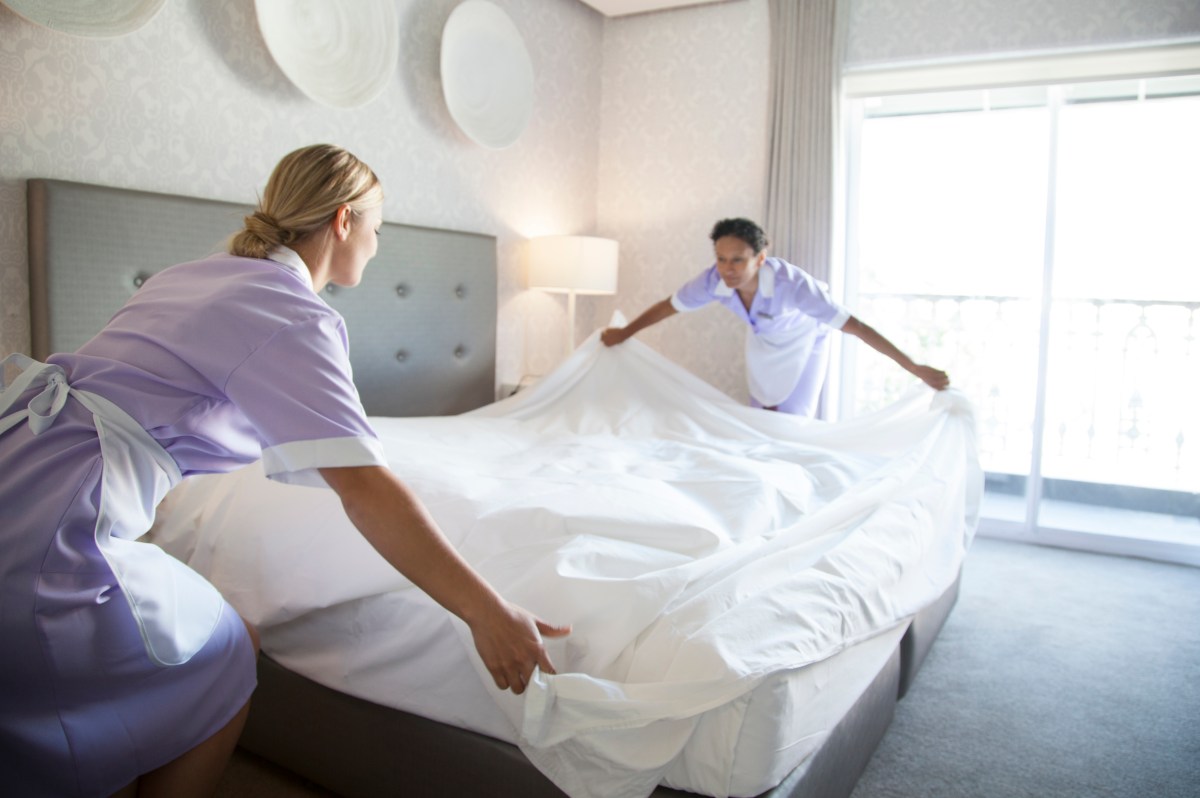
Under the bill, hotel owners must pay a $350 application fee to obtain a license, which would last for a two-year period.
To be licensed, the legislation would mandate hotel operators have staff covering their front desks at all hours or have a security guard continuously monitoring the premises when any room is occupied. They would also have to clean all of their rooms on a daily basis.
Other safety provisions specifically aimed at protecting hotel employees would require each one to be equipped with a panic button — and to receive training on human trafficking.
The main point of contention over the bill was a provision that would bar hotels from hiring non-unionized subcontractors for front-facing positions — such as front desk workers and housekeeping staff. Menin says the provision, which has long been an HTC priority, would combat poor working conditions that subcontracted workers often experience.
“The subcontracting ban is addressing deplorable working conditions and wage theft once and for all,” Menin said.
While opponents of the bill have charged it would cause subcontracted workers to lose their jobs, Menin says hotel owners are legally required to directly hire those same workers once they can no longer work as subcontractors.
However, hotels with less than 100 rooms have been exempted from the bill’s direct-hiring requirement after an extended outcry from small hotel owners over the onerous cost they believe direct hiring would incur. An earlier revision to the bill also exempted certain positions—such as food service workers and security guards—from the subcontracting ban.
The Hotel Association of New York City (HANYC), an industry group that was the bill’s main opponent, dropped its opposition after Menin made the revisions.
But opposition to the bill still remains.
The NYC Minority Hotel Association, in a Wednesday statement, called the measure an “affront to the city’s independent, particularly minority-owned, small businesses.” They argue the bill was rushed through a lawmaking process that included little engagement with small hotel owners.
“The so-called ‘Safe Hotels Act’ will do nothing to make New York safer, but it will force many smaller, minority-owned and family-run hotels to close, kill thousands of jobs, and cause room rates across five boroughs to skyrocket, eliminating affordable options for New York City’s millions of annual tourists and visitors,” the organization said. “We urge Mayor Adams to stand up for New York’s independent, minority, small business owners and veto Intro. 991.”
HTC President Rich Maroko blasted some of the bill’s industry opponents, without naming them, as “bad actors” during Wednesday’s rally.
“We had some powerful forces aligned against us, forces that put profits over people, some bad actors who care more about their bottom lines than they do about the human beings who work and stay in these hotels,” Maroko said. “But in the end, it was inevitable that we would get to this point because we have built an unbeatable coalition.”
Read More: https://www.amny.com/politics/
